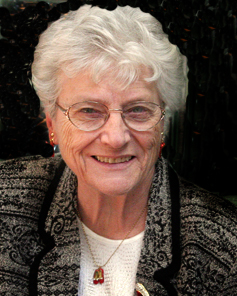
The following article is part of the Diamond Club Member group that began in the January 7, 1943, issue of the Rock County Star Herald. Members of this group consist of persons of age 75 and older.
This article appeared in the April 15, 1943, edition of The Rock County Star Herald.
Helping to move the buildings of an entire village using only oxen as motivating power, earning his own living at the age of eight, and helping to thresh 16 seven load stacks of grain in a day are but a few of the many experiences of David E. Payne, one of Luverne’s pioneer presidents.
Mr. Payne was born near Oshkosh, Wis., 30 miles from Lake Michigan, May 2, 1865, just 15 days after Abraham Lincoln died, and was left motherless at the age of four. His father was remarried to a widow, who had two sons just enough older than Mr. Payne to be able to “beat the stuffings” out of him whenever they felt the urge.
When he was about eight years old, he states, he decided he’d taken it long enough, so he brought the matter to his father’s attention. “I didn’t get as much satisfaction from father,” Mr. Payne said. “He didn’t seem to be much concerned with my troubles so I decided it was best for me to go someplace else.
“The next morning I got out of bed early, tucked two school books under my arm and with just a few clothes, I started out from home. I didn’t have the slightest idea where I was going, but I knew I’d be taken in somewhere, so I wasn’t really much worried.”
As souvenir of that morning, Mr. Payne still has in his possession one of the books, a primer, that he carried with him when he left home.
He went to a neighbor’s place, and he agreed to hire him at $5 per month for nine months. That he had the old-fashioned respect for a parent despite any differences that might have existed between them, is evidenced by the fact that he told his employer to “go see Dad and let him tell you if you are to pay me or him.”
This his employer did, and the father said, “If the kid wants to work, pay him. All I ask is that he grows up to be a man among men and that he pays his just debts like a white man.”
“That’s something I never forgot,” Mr. Payne states, “and I’ve tried to live up to that the best I could all my life.”
His employer was evidently satisfied with his work, for at the end of the year, instead of paying him $5 per month as he had agreed to do, he paid him $6. He worked there for five years, getting a couple of dollars raise per month each year. During the slack season he attended school.
“No football or basketball playing for me after school,” he declares. “I was introduced to the buck saw both before and after school for recreation.”
Mr. Payne remembers well the Wisconsin logging days, but he recalls one thing in particular—how low the living costs were for lumber jacks when they were not working. In those days, according to Mr. Payne, every saloon had a bar along one side, and a lunch counter on the other. All a man had to do to get a lunch was buy a glass of beer and help himself to what there was to eat on the lunch counter. He knew men, that lived on three glasses of beer a day and the free lunches that went with them.
At the age of 16 he went to visit his sister who lived on a farm near Fargo. Then he obtained work with a Minneapolis construction firm, but when they wanted him to go to Duluth in the dead of winter to help build a dock he quit his job.
One of the most interesting experiences he ever had was helping to move the village of Cogswell, N.D. to its present site from its former location a mile away. Buildings of all sizes and shapes, even some elevators as “big as any in town here,” were moved during a three month period. Twenty-eight yoke of oxen were used to drag the heavy structures. When the moving was finished, the town looked just as it had previously. The streets were identical, and the buildings were located exactly as they had been on the original site. Reason for moving the town, Payne said, was so that it could be on an important cross road.
This article will continue in next week’s edition of the Rock County Star Herald.
Donations to the Rock County Historical Society can be sent to the Rock County Historical Society, 312 E. Main Street, Luverne, MN 56156.
Mann welcomes correspondence sent to mannmade@iw.net.



